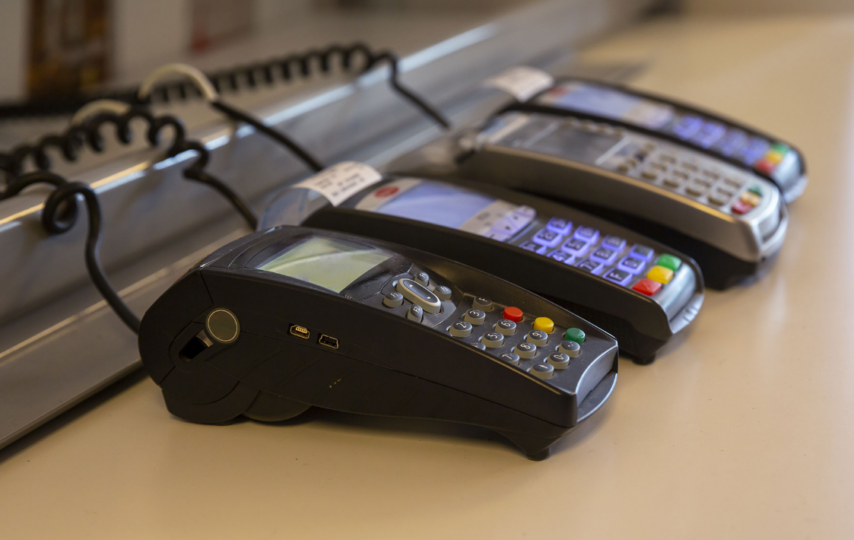Card payment machines are essential tools for businesses that wish to provide customers with easy and safe purchasing solutions. Whether renting or buying, the total cost will include transaction rates as well as other associated costs.
Credit card processing companies charge additional fees associated with credit card hardware purchases and processing.
1. Hardware
Hardware requirements for operating a card machine vary by vendor and model. At minimum, you need a magnetic stripe credit card reader and PIN pad that supports Europay, MasterCard and Visa (EMV). Prices increase when adding features like built-in printers and wireless capabilities – whether purchasing or leasing is also an important consideration.
Merchant account providers usually offer a selection of terminals and prices, from basic countertop machines suitable for brick-and-mortar retail stores, to comprehensive point-of-sale (POS) systems that track inventory and generate sales reports. Many vendors also provide additional hardware like barcode scanners, receipt printers and cash drawers that ensure seamless checkout experiences for customers.
Processing fees should also be factored into your budget, which typically consist of a flat percentage plus any swipe charges imposed by merchant account providers. Be sure to consider any potential reprogramming or equipment insurance charges which may arise as well.
2. Installation
Credit card payment machines are an essential investment for any business, and it is wise to carefully evaluate all associated costs before deciding between buying and renting one. Comparing transaction rates may prove more cost-effective in the long run.
Based on your needs, you may require either a traditional terminal or smart terminal. Smart terminals offer additional features like mobile connectivity and touch screens; they can even be semi-integrated into POS systems to support digital wallets like Apple Pay. Smart terminals are perfect for businesses with small inventories but high transaction volumes; prices usually begin around $400 but could reach $1,000+.
Are You Traveling, Attending Trade Shows and Markets or Retaining Merchant Services? A wireless machine may be ideal – these battery-powered units connect via WiFi or cellular data to the Internet for transaction processing and typically cost over traditional terminals by up to $1,800 – as well as being battery powered! When selecting this type of machine for mobile merchant services as the number of merchant services offered may affect its price significantly.
3. Monthly fees
“How much does a card machine cost per month” isn’t an easy question to answer since there may be various fees and charges that must be considered, such as monthly transaction fees, account setup costs and PCI compliance costs.
Cost factors in for card machines vary based on whether they’re wired or mobile terminals and which reader type you select; mobile card machines connected via Wi-Fi or 3G data packages tend to be cheaper than stationary countertop terminals or registers.
Renting rather than purchasing card machines is available from several providers and generally involves a contract commitment of 12-36 months. A growing startup may find it useful to start with an app-based card reader before moving up to more advanced terminals as sales increase. Furthermore, it’s crucial that you review what kind of payment processor and their pricing structure they employ – some offer tiered rates while others have flat transaction rates to avoid unexpected surprises down the road.
4. Hardware maintenance
Maintaining hardware properly is key for organizations that rely on it for operations. Hardware maintenance encompasses preventative services that physically repair and optimize hardware; this may include contract maintenance services, per-incident repairs or support as needed.
Purchase or leasing of a card machine can range in cost from less than PS100 to several hundreds, with some companies charging monthly rental or transaction fees, while others levy additional setup, payment gateway and compliance costs. When considering costs it’s also important to keep functionality and integration in mind: how easily does the reader integrate into your point-of-sale (POS) system; does it include PIN pad/tap and chip capability capabilities as well?
As a business owner, it’s also essential to understand the running costs associated with card machines, including transaction fees. While this may initially seem complex due to changing transaction rates depending on sales volume, SumUp’s transparent pricing structure makes it simple for you to see what your monthly costs for payments will be.
5. Software
No matter the hardware you select, software will ultimately determine your cost of operation. There are various kinds of credit card terminal software; choosing which one best meets your business’s needs depends on which features are most desired for it.
Example: A barber shop processing payments once every 15 to 30 minutes may do well with a basic card reader connected to their smartphone, whereas liquor stores that experience weekend rush traffic require something more advanced. Furthermore, your choice of software could impact whether or not it works with your chosen payment processor or POS system.
An effective way to select the best card machine for your business is comparing prices among providers. Many POS and merchant service providers charge non-negotiable transaction fees that add significantly to the cost of credit card terminals; by contrast, payment facilitators like Zettle, SumUp and Square typically offer freestanding card readers that require pay-as-you-go transactions fees per transaction.







